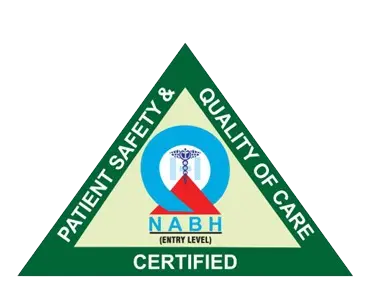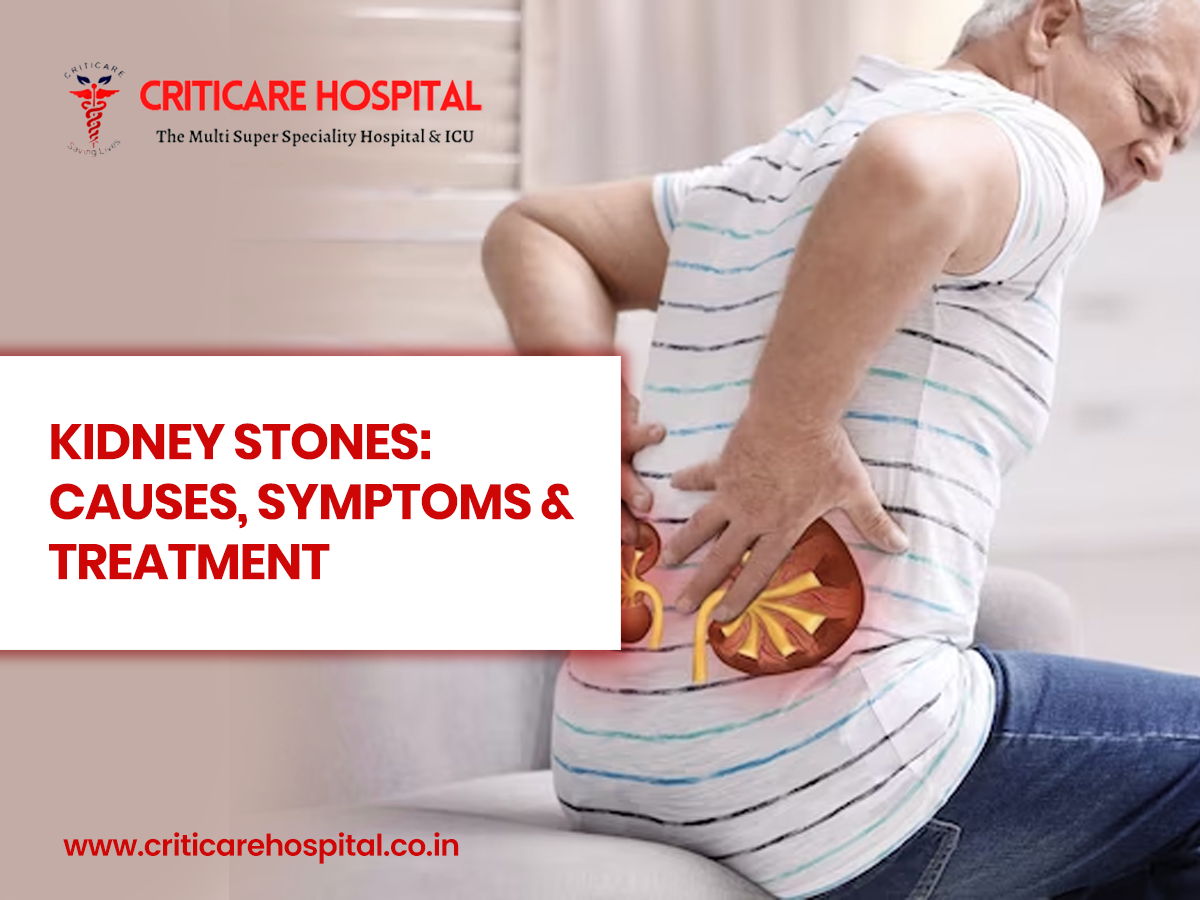As per the recent study about 1 in 10 people will get a kidney stone during their lifetime. Kidney stones are solid masses that form from substances like acids or salts in your kidneys. It can be as small as a grain size or can be as big as the size of a tennis ball. Well, smaller kidney stones can be passed through the urinary tract in your pee but large kidney stones can be trapped in your ureter. This can cause a limit to your kidney’s ability to filter waste from your body. Let’s understand the causes, symptoms, and treatment of kidney stones.
What are the Causes of Kidney Stones?
Your pee contains acids, calcium, sodium, minerals, and uric acid. When there are too many particles of these substances and very little amount of liquid then they can stick together forming crystals. Kidney stones can form over many months. Let’s understand the different types of kidney stones.
First is calcium oxalate or calcium phosphate stones, which are caused when you eat high-calcium foods and do not drink enough water.
Another is struvite stones, caused by repeated bacterial infections and this may be responsible for a large kidney stone that usually needs to be surgically removed. Uric acid stones can be caused due to excessive eating of animal protein and not drinking enough water.
What are the Symptoms of Kidney Stones?
Symptoms of kidney stones are bloody pee, feeling the urge to pee a lot, fever, cloudy or foul-smelling pee, pain while peeing, inability to pee, and abdominal pain. If a person has a smaller kidney stone, it is also necessary to consult the Best Urologist in Lucknow for proper medication.
On the other hand, you can be at a higher risk of developing kidney stones if you are not drinking enough water, eating sodium-rich foods, following an excessive protein-rich diet or calcium-rich diet, having a blockage in the urinary tract, taking certain medication, have had intestinal surgery.
How to Diagnose Kidney Stones?
Kidney stones can be diagnosed through a urine test. With the help of a urine test, your doctor can test your pee for blood, stone-forming crystals, and signs of infections. Another is ultrasound, which can help you identify a kidney stone’s size, location, and shape. Imaging X-rays and CT scans can also help determine kidney stones’ size. A blood test is also advised for the diagnosis of kidney stones, this can help in checking kidney function, detect infections, and look for higher levels of calcium.
What are the Treatments for Kidney Stones?
Treatments for kidney stones are suggested by a urologist depending on the cause of your kidney stones. You may need medications or changes in lifestyle if you have smaller kidney stones. Whereas for large kidney stones or as per the severity of the condition, your urologist may suggest these procedures.
- Ureteroscopy
In this process, a scope is inserted through your urethra and bladder and into your ureter. An Instrument that passes through the scope can break up to remove the stones. The smaller pieces are removed through the urinary tract and they are out of your body.
- Shockwave Lithotripsy
Shockwaves are used to break apart the stones from the outside of your body. It can be moved through your urinary tract and then out of your body. During extracorporeal shockwave therapy, you do not require any surgery.
- Percutaneous Nephrolithotomy
During this process, a tube is inserted directly into your kidney through a tiny incision, and then during an ultrasound probe, kidney stones break up and remove the stones.
- Laparoscopic Surgery
During this process, a small incision is made to remove the stone and in a few cases, you may require open surgery. At the Best Urology Hospital in Lucknow, you can get advanced treatment and the least risk is involved under experienced healthcare staff and doctors.
Conclusion
If you have kidney stones then you are at higher risk of chronic kidney disease that is why it is important to understand the causes, diagnosis ways, and treatments of kidney stones. Also, drink plenty of water, limit animal protein foods, limit foods high in oxalate, and avoid foods high in sugar and sodium to minimize the chances of kidney stones. Don’t waste your time if you have kidney stones or if you are experiencing symptoms of kidney stones, it is important to understand where kidney stones are located and what is their size so that you can prevent further complications.




